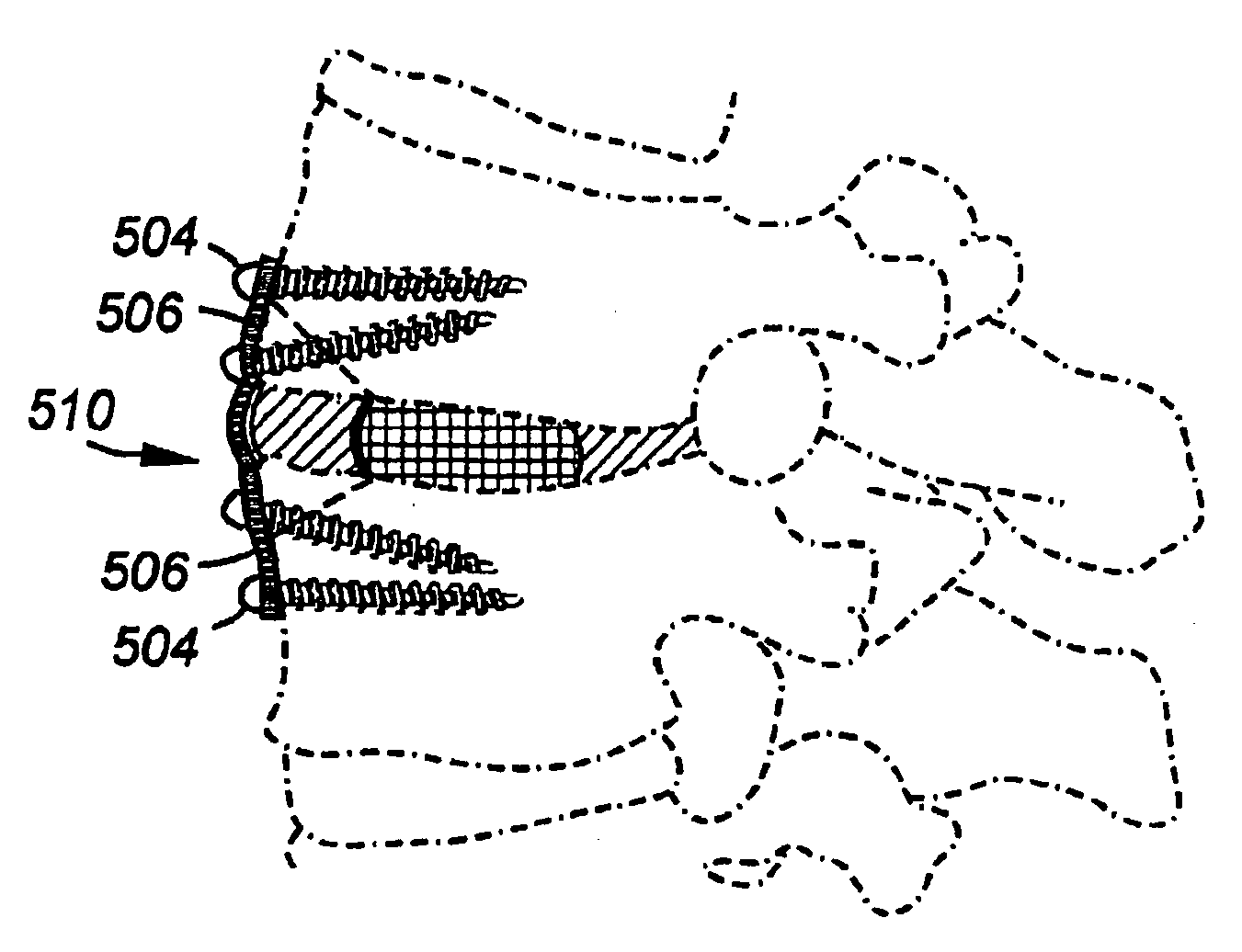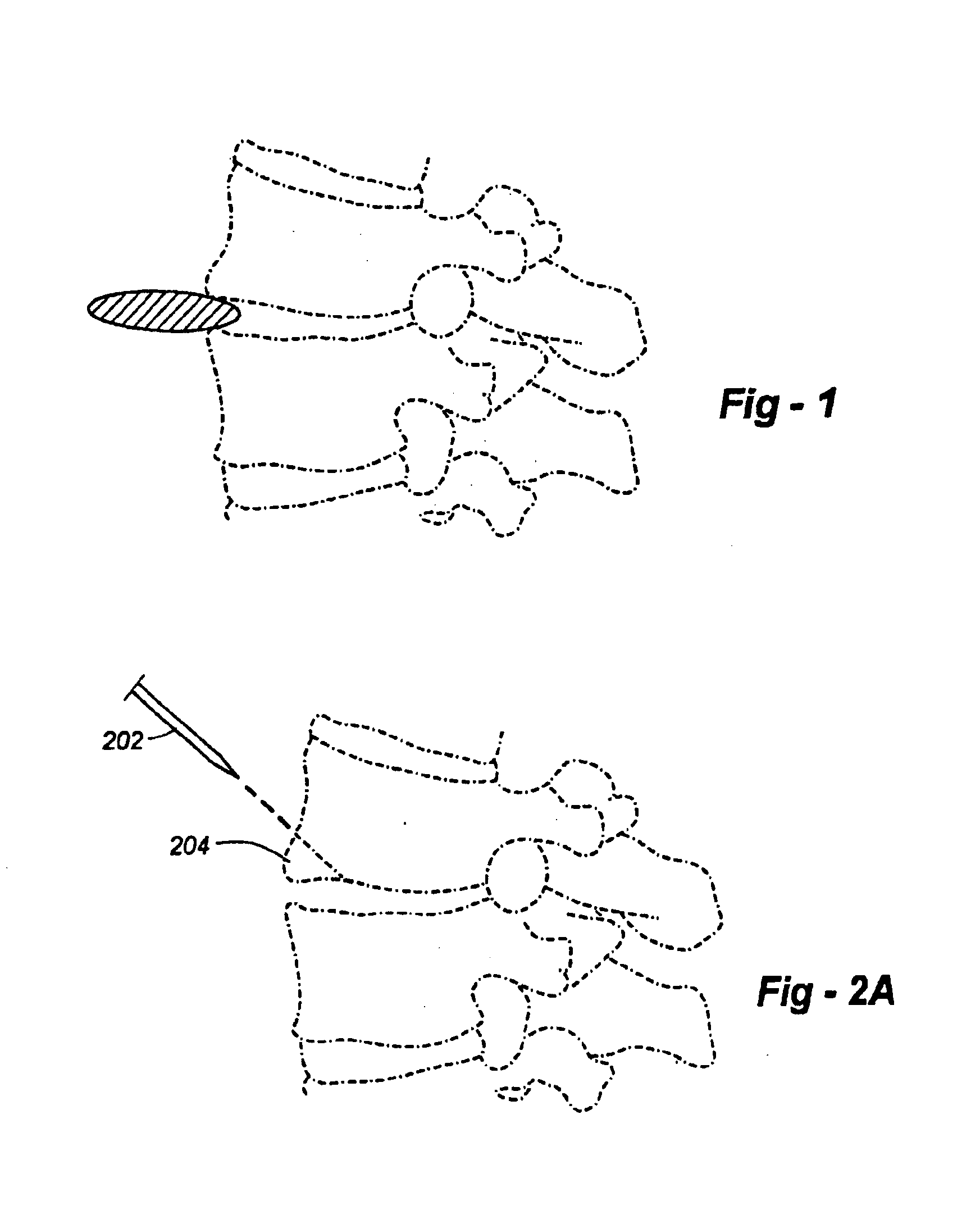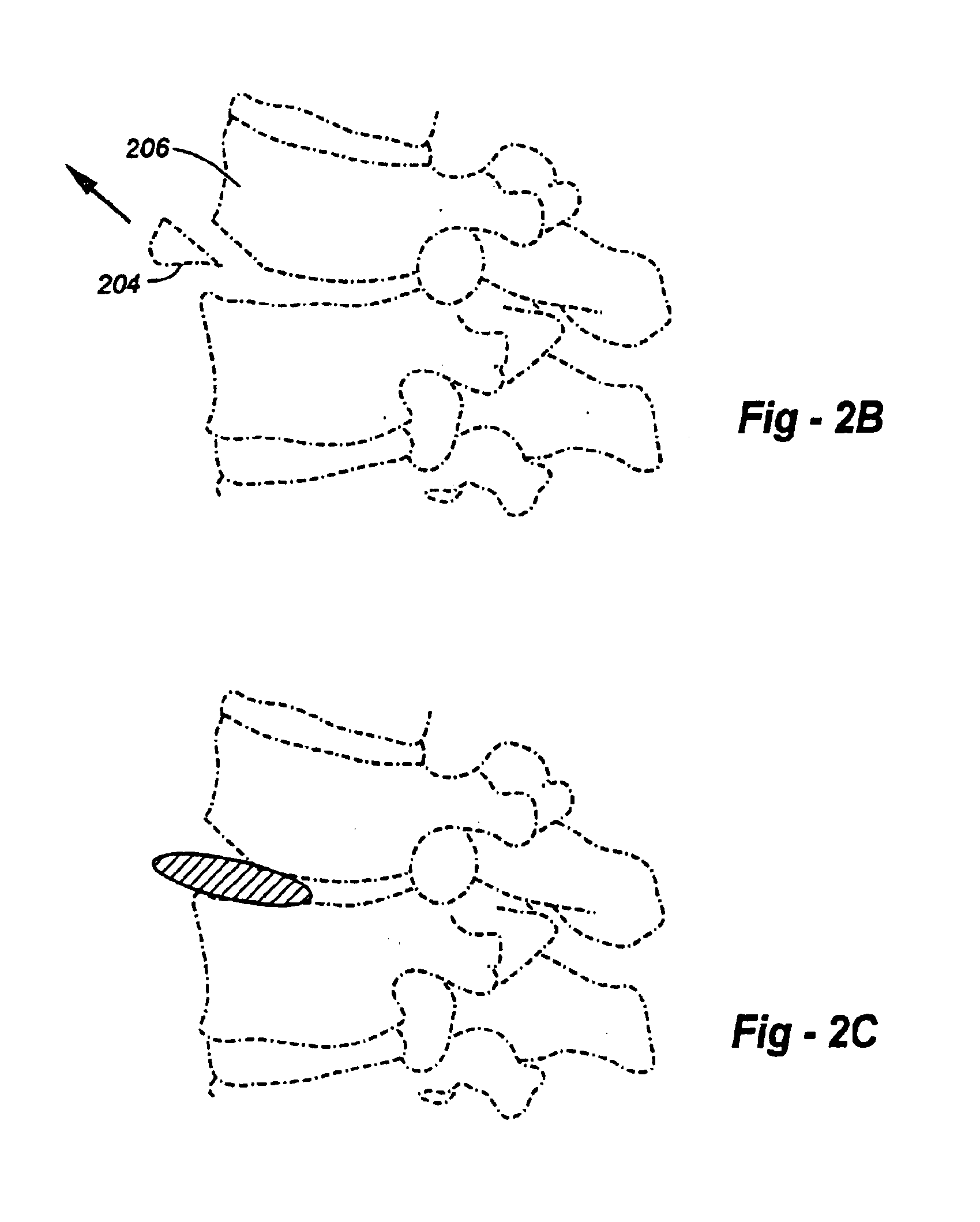Methods and apparatus for placing intradiscal devices
a technology of intradiscal devices and devices, applied in the field of spine surgery, can solve the problems of insufficient distraction of vertebrae, limited number of intradiscal devices that change size or shape, etc., and achieve the effect of convenient insertion of devices
- Summary
- Abstract
- Description
- Claims
- Application Information
AI Technical Summary
Benefits of technology
Problems solved by technology
Method used
Image
Examples
Embodiment Construction
FIG. 2A is a side-view drawing illustrating an approach taken according to a method of the invention. In particular, a tool such as an osteotome 202 is used to remove or truncate a lower anterior portion of the upper vertebrae 206. FIG. 2B shows the portion removed from the vertebrae. FIG. 2C shows how, with the portion removed, the intradiscal device may be more easily inserted. FIG. 2D shows the intradiscal device in place in the intervertebral space. FIG. 2E shows the replacement of the osteotomized portion. Note that the piece of bone itself may be drilled and / or tapped if necessary, preferably before the osteotomy, to assist with reattachment.
FIG. 2F provides an anterior and lateral view showing the way in which the device is used to hold the osteotomized fragment. FIG. 2G is an anterior and lateral view of the preferred fragment-holding device, with the lateral or side view being shown in cross-section. As an alternative to a plate and fasteners, a cable system may be used to ...
PUM
 Login to View More
Login to View More Abstract
Description
Claims
Application Information
 Login to View More
Login to View More - R&D
- Intellectual Property
- Life Sciences
- Materials
- Tech Scout
- Unparalleled Data Quality
- Higher Quality Content
- 60% Fewer Hallucinations
Browse by: Latest US Patents, China's latest patents, Technical Efficacy Thesaurus, Application Domain, Technology Topic, Popular Technical Reports.
© 2025 PatSnap. All rights reserved.Legal|Privacy policy|Modern Slavery Act Transparency Statement|Sitemap|About US| Contact US: help@patsnap.com



